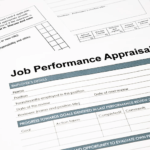When setting up small business infrastructure, the development of handbooks and workplace policies are often overlooked; but these documents should serve as the “backbone” of company culture and structure.
Several times, I’ve been told by small business owners that handbooks and set policies can be too restrictive; that they would rather have their company’s culture driven by their day to day interactions and deeds than by rules and policies. Taking this into consideration, here are some common mistakes made with handbooks and workplace policies:
1. Not having a handbook or workplace policies in place. While an employee will absolutely learn about your business by what you do and how you treat people, that alone is not a substitute for well thought out documentation. Not only does this answer a myriad of questions for employees, it also protects you – the employer – from legal claims that could arise. The very first thing your employment lawyer will ask when you call to say you’ve been served paperwork for a legal claim is “What is your policy, where is it documented, and did the employee sign it?”If you don’t have these in place, it’s your word against your employee’s.
2. You don’t follow your handbook or workplace policies. A handbook or policy that isn’t used in practice is worse than not having one at all. When you have a rule or policy in place that is not followed, you indicate to your employees that you don’t have any regard for your own rules – so why should they? Even worse, if you apply them sometimes, but not all the time, you are setting yourself up for a discrimination claim.
3. Your handbook and policies do not reflect your culture. Your handbook and your policies will be one of the first places employees look when they have a question about your company and therefore should be a written representation of what you want your employees to know. Often, small businesses obtain a template of common workplace policies from a lawyer, insurance agent, or association or even may inherit them from a previous owner. These may serve as a great starting point but can’t be used “as is”. They must be edited in order to best provide a framework for what YOU expect in your unique situation.
4. You haven’t updated your handbook or policies. This follows closely with #2, in that you need to actually need to utilize your handbook and put existing policies into practice. One difference here, however, is that employment law changes often. If you have policies that have not been reviewed in the last year, you may have outdated or even illegal policies in place.
5. Not giving enough information in your handbook and policies. Employees want to know what is expected of them. They want to know how things should happen and what they should expect from you. Not providing enough information to answer basic employee questions can leave an employee feeling confused, frustrated, and like their needs are being overlooked. Surely this isn’t what you want for your employees.
It is absolutely worth the time to sit down and thoughtfully prepare a company handbook and/or workplace policies, hopefully with the guidance of a Human Resources professional. Not only will you be providing a framework for your employees, but also for supervisors, managers and for yourself.



